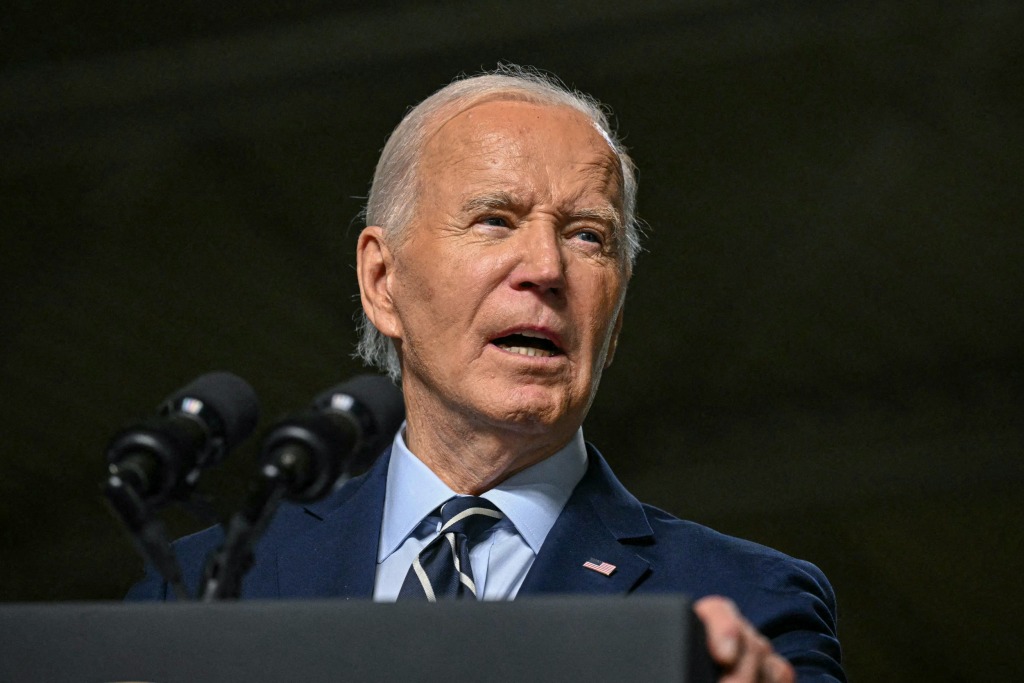
Biden Debunks Weather Control Conspiracy Theories Amid Hurricane Milton Threat
In a recent virtual briefing, President Joe Biden firmly dismissed conspiracy theories surrounding the government's alleged ability to control the weather, particularly in light of Hurricane Milton's impending landfall in Florida. As the storm loomed ominously, threatening to wreak havoc on the state, Biden addressed these wild claims made by Republican Representative Marjorie Taylor Greene, labeling them as "beyond ridiculous." He emphasized the critical need for clear and accurate information, especially during natural disasters when misinformation can exacerbate fears and hinder emergency responses.
Greene, who has made headlines for her controversial remarks, suggested in an October 3 post on X that humans could control the weather. She stated, “Yes, they can control the weather. It’s ridiculous for anyone to lie and say it can’t be done.” Her comments were met with skepticism, even among some of her fellow Republicans. Representative Carlos Giménez from Florida responded sharply, asserting, "Humans cannot create or control hurricanes. Anyone who thinks they can needs to have their head examined." Such statements reflect a growing frustration among lawmakers regarding the spread of conspiracy theories, particularly when they undermine public trust during crises.
Also Read:- Hurricane Milton: Tornadoes Signal Trouble in Florida
- Jake Rogers: The Cult Hero of the Tigers’ Postseason Journey
During his briefing, Biden reiterated the urgency of addressing the misinformation, stating that the promotion of disinformation was reckless and irresponsible. He underscored that these assertions had the potential to hinder rescue operations in the aftermath of Hurricane Helene, which had already inflicted significant damage just weeks prior. The president specifically called out former President Donald Trump for leading this "onslaught of lies," emphasizing the importance of factual communication during emergency situations.
Biden's remarks coincided with Greene's further claims about weather modification. She pointed to the National Oceanic and Atmospheric Administration (NOAA) and referenced the Weather Modification Act of 1972, which requires the government to report on weather modification practices. Greene insisted that if individuals suffer damage from these so-called weather modifications, they should be eligible for compensation, questioning whether the public was ever consulted about such interventions. This rhetoric reflects a broader pattern of skepticism towards governmental agencies and initiatives, especially among some members of the Republican party.
Despite the sensational claims, scientists and experts have clarified that the ability to control weather systems, particularly large phenomena like hurricanes, is currently beyond our technological reach. Although there have been limited attempts at weather modification, such as cloud seeding—an approach that involves introducing substances like silver iodide into clouds to encourage precipitation—these efforts are not capable of altering or steering powerful storms like hurricanes.
The discussion of weather modification brings to light the more serious implications of climate change. As fossil fuel emissions continue to warm the planet, the intensity and frequency of hurricanes have increased, leading scientists to explore various geoengineering strategies. However, large-scale weather manipulation remains largely theoretical, with no evidence of successful implementations on the scale suggested by conspiracy theorists.
As Hurricane Milton approaches Florida, it serves as a stark reminder of the immediate dangers posed by natural disasters and the critical need for reliable information. In times of crisis, the spread of misinformation can not only hinder emergency responses but also exacerbate the vulnerabilities of affected communities. President Biden's stance against these unfounded conspiracy theories is a call to action for both leaders and citizens to prioritize facts over fear, ensuring that accurate information is disseminated during times of uncertainty. The focus must remain on preparedness and response, rather than distractions fueled by wild claims and conspiracy theories.
Read More:

0 Comments